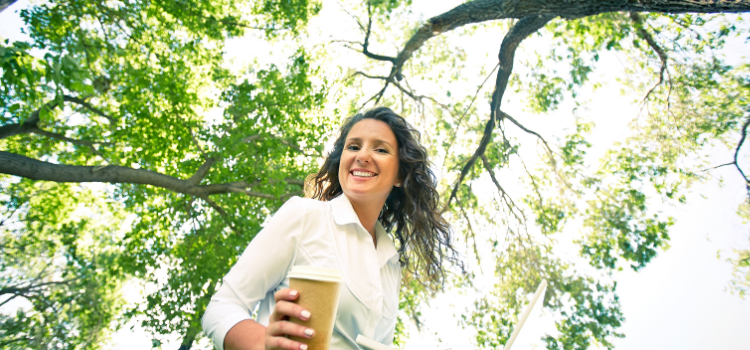5 Benefits of Working OutdoorsPosted: 2020-10-27
The COVID-19 pandemic has caused a lot of people to work at home. Some businesses have decided to allow their employees to remain productive minus the daily trips to their workplaces. This was to minimize the health risks and secure the safety of their workers. Unfortunately, some people experience depression or anxiety when working indoors. This is a direct result of having too little time spent outside, and according to statistics, almost 90 percent of Americans spend the majority of their time indoors. Working outdoor isn't only fun; it's also good for your health. This article gives you five reasons why you should consider getting out to do some work. It lets you get fresh air. The air that circulates throughout your home is likely more polluted than the air outside. Some of the reasons include your use of household chemicals such as cleaning agents, detergents, shampoo, insecticides, etc. Your indoor air has a poor balance of oxygen, nitrogen, and carbon dioxide because of these compounds. On the other hand, fresh outdoor air allows you to inhale more oxygen and exposes you to lower levels of pollution. More oxygen means better lung function, tissue repair and allows for easier exchanges of gases. Working outdoors also helps lower your blood pressure and heart rate. Since outdoor air has plenty of oxygen, a few deep breaths help bring this critical gas to your body. As a result, your heart can relax, and your blood pressure lowers. It offers your daily dose of Vitamin D. Also known as "the sunshine vitamin," Vitamin D is a fat-soluble vitamin, which your body produces when it's directly exposed to sunlight. Studies show that sunlight provides 90 percent of our Vitamin D. This vitamin is responsible for several essential roles, such as the absorption of calcium and phosphorus and facilitating normal immune system function. Vitamin D is also known to help people with depression. According to several studies, people low in Vitamin D levels are more likely to suffer from depression than others. Because Vitamin D plays a vital role in proper brain function, inadequate levels may cause depression and other mental illnesses. It allows you to burn more calories. Regular outdoor activities let you burn more calories compared to working indoors. Here are some activities and the corresponding number of calories burned per hour: • Mowing the lawn - 250-350 calories per hour • Raking and bagging leaves - 350-450 calories per hour • Shoveling snow - 400-600 calories per hour • Heavy yard activities (moving rocks, landscaping) - 400-600 calories per hour • Planting - 200-400 calories per hour You may not be allowed to go to the gym while on quarantine, but regular activities just outside of your home can sure burn some calories. It is better for your eyes. It has been said that looking at green objects helps improve eyesight — but this is a myth. But the truth is that you should look at an object that is at least 20 feet away so the muscles of your eyes can relax. This is hard to achieve if you're working at a desk next to the wall. This is why working outside is excellent for your eyes. It's so easy to take a quick break and look at greeneries and the landscape. Enjoying the outdoor view helps reduce your eyes' stress and lower the risk of getting a headache. It helps you sleep better. There was a time when people spent a lot of time outdoors, where they were exposed to light from sun up to sundown. Today, we spend more time indoors because of modern lighting and electricity, which allow us to work even at night. But as mentioned earlier, there are health benefits when you expose your body to the sun, one of which is improved sleep. Temperature and light cycles are essential for sleep. The morning sun sends you a signal that it's time to wake up and go outside and get a full spectrum light from the sun. Experts say that exposure to natural light can provide an average of 46 more minutes of sleep.
| |






.jpg)
